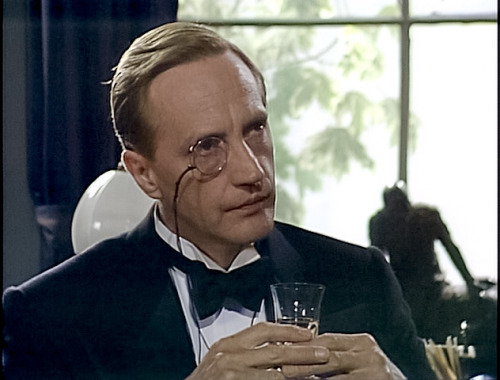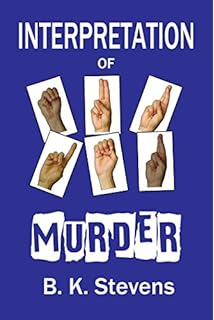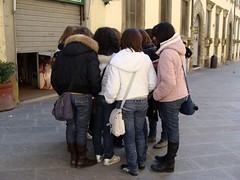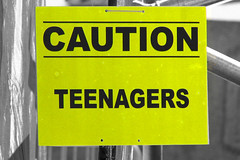Editor Kenneth Wishnia gathered 33 stories together in what Booklist called “a first-rate collection of short stories dealing with traditional noir subject matter and tone but offering Jewish variations on the theme.”
As one of the contributors, I’m offering a look under the hood. First, an interview with the editor, and then a group interview with over a third of the authors. Buckle up!
Q: Say something Jewish.
Ken Wishnia: You call that a question? What kind of question is that?
Q: Say something Noir.
Ken Wishnia: Governor Scott Walker of Wisconsin. Oh, sorry. That’s horror. You said noir.
Q: What made you decide the world needed a Jewish Noir anthology?
Ken Wishnia: The JEWISH NOIR anthology was originally Reed Farrel Coleman’s idea, and we agreed to co-edit it. Then he signed a contract to do the next three Robert B. Parker Jesse Stone novels, and had to drop out. So I ended up being the sole editor.
Q: Give me a few words about your story.
Ken Wishnia: It’s based on my parents’ experiences in the late 1940s when they were the first in their families to go to college, and these were exclusive colleges, which also meant being among the first Jews in those traditionally WASP enclaves. They came from Brooklyn, from working-class immigrant families that had just survived the Depression and WWII, so as you can imagine, much tension ensues.
Q: Tell me about the trials and tribulations and joys and sorrows in birthing this book. Aw, come on. Tell me.
Ken Wishnia: OK, first we queried everyone in sight. Then we got commitments from some very big names. Then we pitched the anthology to a number of publishers using those names, and when they all turned us down, we went with PM Press, who have been fabulous to work with. Then the big names dropped out. So I went outside the box, inviting a number of unorthodox writers (in both senses) to contribute stories. Then some of those writers tried to drop out, claiming they really weren’t “noir” writers, and I had to do a lot of emailing back-and-forth to convince them that their stories were sufficiently noir for our purposes. The result is a very strong anthology, with very few of the “usual suspects” in it.
Q: How did you choose the stories?
Ken Wishnia: I went after certain names, but there was also a lot of serendipity involved. I met three of the contributors at NoirCon and invited them to submit because… well… because they were at freaking NoirCon, for God’s sake. Isn’t that enough? Jedidiah Ayres cracked me up just with his bio, then his reading was so outrageous that I just had to ask him to be one of our “you don’t have to be Jewish to write Jewish Noir” contributors. Check out his story, “Twisted Shikse,” and I’m sure it’ll make you a fan of his work. Or something. And I met a couple more contributors at Bloody Words in Toronto, as you may recall. So I hope that these authors view their inclusion in JEWISH NOIR as the result of being in “the right place at the right time,” ‘cuz it’s true.
Q: How did you arrange the stories?
Ken Wishnia: My original plan was to arrange the stories in chronologically in order of when they took place, because I figured we’d get a lot of historical pieces (ancient Israel, medieval Europe, 19th century Europe, etc.), but of the 30 original stories in the anthology, the earliest period depicted is the 1940s; five of the stories take place in this decade, and all the others in the decades since then. So I went with themes. Very broad themes….
Q: Is there anything you would have done differently?
Ken Wishnia: I was supposed to be discovered by a rich benefactor and get a six-figure advance, but I just never quite got around to it.
Q. I can't believe how many book launches you're having across the United States. How did you manage that?
Ken Wishnia: In fact, JEWISH NOIR, for whatever reason, is getting more attention than anything I’ve done in years. I’m also spending a f*ckload of money on publicity, but so far the thing itself is driving most of the interest. So clearly we’re filling a niche that we didn’t know existed (well, Reed Coleman knew it) and there’s simply no way to plan for that.
Q: Israel.
But seriously folks, the one story in JEWISH NOIR that takes place in Israel is “Good Morning Jerusalem 1948,” written by Michael J. Cooper, who, as his bio tells us, is a pediatric cardiologist who frequently travels “to Israel and the West Bank to volunteer his services to children who lack adequate access to care,” which gives him the authority to say anything he wants as far as I’m concerned.
Now let’s talk to the contributors! Harlan Ellison couldn’t make it, but I’m sure he wanted to.
1. Say something Jewish.
Moe Prager/Reed Farrel Coleman and BK Stevens: Oy vey iz mir.
Steven Wishnia: Oy vey. Gey kakken oyfn yam. If I sold coffins, nobody would die.
|
Wendy Hornsby: Oy. Such a versatile word. Cleaner than the French merde, and applicable to as many situations.
Melissa Yi: Sydney Taylor, Johanna Reiss, and Art Spiegelman.
Taylor’s All-of-a-Kind-Family series first introduced me to Judaism. I remember feeling smug that other people in my third grade class were like, “What’s Chanukah?” and I could’ve told them about dreidels. When my family moved to Germany, one of my favourite books was The Upstairs Room, by Johanna Reiss. And who can forget Spiegelman’s Maus I & II?
Adam D. Fisher: The Jewish people is the eternal people that is always dying.
M. Dante: Baruch Dayan Emet.
|
Robert Lopresti: “We have to believe in free will. We have no choice.”—I.B. Singer
Alan Gordon: A long time ago, in a tiny village in the Carpathian Mountains ...
S.A. Solomon: The Jewish Noir launch party at the Mysterious Bookshop in Manhattan conclusively established that NYC has the best bagels on the planet.
Heywood Gould: Pupik.
SJ Rozan: You can't ride two horses with one behind.
Michael J. Cooper: His luck should be as bright as a new moon. (ie. – no moon)
Zayn mazl zol im layhtn vi di levone in sof khoydesh.
This is, perhaps the dark side of one of my favorite passages from the Psalms (139:12);
Night shines like the day and darkness is as light.
Dave Zeltserman: I first was going to provide a smartass response, such as simply oy vey or matzah balls. Next I considered writing about arguments I used to have with my dad about whether certain ballplayers were Jewish or not or my affinity to the Three Stooges, which was no small part due to my granny (who was the last person you’d expect to know about the Three Stooges) proudly telling me how they came from the same part of Russia as she did. Finally, though, I decided to write about how I and every other Jewish person I’ve known wear our emotions so heavily on our sleeves. When we’re pissed, you know it. When we’re miserable you know it. The rare times we’re happy, you know it. When I was I was in college back in the late 70s and early 80s, I had a Navy ROTC scholarship, and I was miserable. Given the record amount of times I was written up for my uniform not being right and all my other infractions, no doubt the officers and other kids in the program equally knew it. You had until the end of your sophomore year before you had to commit, and I tried for 2 years to talk myself into sticking with it, but I was a computer science major, and all I wanted to do when I graduated college was design and write software, and the last thing I wanted to do was spend four years on a ship. When I dropped out of ROTC at the end of my sophomore year, it was no surprise to anyone. What did surprise me, though, was that this kid who was Mr. ROTC also dropped out the same day. This kid always appeared to be so gung ho, his uniform always perfect, and he was considered the top in the program as far as future officer material. I’d never really talked with him before, but that day we ended up having a few beers together, and he told how miserable he’d been in the program. He completely fooled me and everyone else, while I fooled no one.
2. Say something Noir.
Alan Gordon: In my recurring dream, I'm in the electric chair. Right before they pull the switch, the guard asks, "Would you mind? It's for the Warden." And he places on my lap a container of Jiffy Pop.
BK Stevens: Oy vey iz meir!
Michael J. Cooper: If you don’t want to grow old, hang yourself when you’re young.
As men vil nit alt vern, zol men zikh yungerheyt oyfhengen.
Melissa Yi: ’What is to give light must endure burning.'—Victor Frankl
I'll quote two other people.--"We're all fucked. What did we have kids for? To make more customers for Guinness?" —my friend English Steve Harrington, during a rather alcohol-fueled discussion of global warming.
--"Hudson County is a great place to work for a newspaper. Our politicians aren't sophisticated yet: They still take money in brown paper bags. They could steal half the county and people wouldn't care, but if their cable TV goes out for five minutes, they'll scream." —the late Stuart Rose, the editor who hired me at the Hudson Dispatch in northern New Jersey in 1990.
SJ Rozan: But you can't help trying [to ride two horses].
Robert Lopresti: “We are all in the gutter, but some of us are looking at the stars.” – Oscar Wilde
S.A. Solomon: A mystery man in a trench coat made off with the bag of bagels ... along with a serrated knife. What bloody deeds will play out on the rainswept streets of Manhattan? You say it was editor Ken Wishnia? Oy. Some people will do anything for leftovers. (Thanks, Ken, for the awesome spread!)
|
Dave Zeltserman: I fell in love with noir when I first read Double Indemnity by James M. Cain, if you can equate being dragged into a character’s personal hell with literary love. This love affair only grew stronger when I later discovered Jim Thompson, Charles Willeford, Dan Marlowe, Cornell Woolrich, and many other noir writers. There’s something so primal and raw about this kind of literary noir that is hard to find in any other fiction.
3. How did you end up in Jewish Noir?
Moe Prager/Reed Farrel Coleman: Long story short. Ken and I were supposed to be co-editors, but I got really frustrated at the inexplicable lack of interest in the project from publishers. Then I landed the gig writing Jesse Stone novels for the Estate of Robert B. Parker. I gave Ken my blessing to carry on alone if he wished as long as I could still be a contributor. That this project came to fruition is all to Ken’s credit. He would not be deterred.
Alan Gordon: Good Karma. I got Ken Wishnia into Queens Noir.
Steven Wishnia: Well, I'm Ken's older brother. He told me he was doing it, so I sent him the story. We have a good enough relationship so that he would have told me if it was a piece of crap.
|
SJ Rozan: I wasn't looking where I was going.
Robert Lopresti: My wife, who is Jewish, attended the Jewish Noir panel at Bouchercon last year. Afterwards she asked Ken Wishnia if there were any openings (a few) and whether the authors need to be Jewish (no). So I wrote fast.
4. Give me a few words about your story.
Moe Prager/Reed Farrel Coleman, “Feeding the Crocodile”: Easy. It is said that you feed the crocodile in the hope that he will eat you last. Think of that phrase in terms of a death camp.
Steven Wishnia, "The Sacrifice of Isaac": A tale of money, power, real estate, and race set in 1990s Brooklyn, it begins with a klezmer wedding-band bassist buying cocaine from the son of a politically connected Hasidic real-estate developer in the back room of a catering hall in Williamsburg.
|
SJ Rozan, “The Flowers of Shanghai”: Shanghai Ghetto, rain, cold. Oppression, resistance, flowers.
Wendy Hornsby, “The Legacy”: Ultimately it’s about love, death, and redemption, but aren’t all noir stories? A young woman risks her life to retrieve a family legacy, because her bubbe asked her to.
S.A. Solomon, "Silver Alert”: My story was inspired by a bit of family history: my father served as a B-17 bomber pilot in WWII, and was present at the liberation of Dachau. But the story itself is fiction.
B.K. Stevens, “Living Underwater": The central character is an English professor who becomes consumed by hatred for an administrator who is ruining his professional life. Although he knows his obsession with the Associate Dean for Academic Assessment cannot end well, the professor is incapable of breaking free. As a longtime English professor (and as the wife of a dean), I know how poisonous the pressures, frustrations, and silliness of the accreditation process can be.
Heywood Gould, “Everything Is Bashert”: It's about horses, hustlers and Hasidim.
Melissa Yi, “Blood Diamonds”: Kris Rusch challenged us to write a historical short mystery, with bonus points if we wrote about a crime that was no longer a crime. I decided to add in my experience as a medical resident doctor at the Jewish Hospital in Montreal, but from the point of view of a patient. And it’s the first time my crime-fighting doctor, Hope Sze, makes an appearance in short fiction. Very exciting!
Alan Gordon, “The Drop”: Thinking about Jewish-based crime in Queens, I set my story in the world of Israeli connections in the club drug scene.
Michael Cooper, “Good Morning, Jerusalem 1948”: The story features Yitzhak Rabin as the 26-year-old commander of an elite strike force during Israel’s War of Independence. Rabin’s concerns range from the crushing heaviness of an impending military loss to the lightness of a new-found love, and the temptation of a mysterious and alluring female prisoner. And as Rabin struggles with all this, there is the forming but still very subtle specter of his future assassination – at the hands of his own people.
Robert Lopresti, “Nachshon”: Inspired by a midrash, which also inspired one of my most popular songs.
Dave Zeltserman, “Something’s Not Right”: I’ve written several of what I like to call ‘bogusly autobiographical life in writer’s hell stories’, which are noir stories where I include just enough superficial autobiographical stuff to get relatives and friends of mine nervous, and end up having my writer-protagonist on a one-way ticket to hell. With my Jewish Noir story, I did this at a far more extreme level where I’ve made my protagonist closer to myself than I’d done in any of these previous stories, and I left him nameless. What I’ve tried to accomplish with this story is leave the reader unsure whether what they’ve read was fiction or something else, at least for a few moments.
Adam D. Fisher, “Her Daughter’s Bat Mitzvah: A Mother Talks to the Rabbi”: Read it. It isn’t long. It is full of both pathos and humor and is a combination of people who came to see me and my own imagination.
M. Dante, "Baruch Dayan Emet": A funeral view offers generational and lifestyle reflection.
5. How was your experience with Jewish Noir?
Melissa Yi: Unbelievable. Honestly, I’m astonished that contributors have or will appear in New York, Raleigh’s Bouchercon, Los Angeles, San Francisco, Boston, Houston, and Phoenix and Scottsdale, Arizona. I mean, who does that for an anthology? Is there really a Jewish mafia, because if so, right on!
SJ Rozan: Except for my story depressing the hell out of myself, it was great.
M. Dante: Is it already over? WoW. I feel like I missed it. It went so fast.
Robert Lopresti: It makes me feel guilty (something those of us raised Catholic have in common with Jews) because 1) I am not a member of the tribe, and 2) my story only has two-thirds of the classic noir formula. But, as they say, I cashed the check.
Dave Zeltserman: This has been unlike any other anthology I’ve been part of in the way a community has formed around it. I’ve never been part of an anthology where there’s been so much communication among the authors. Of course, this is all because of Ken, and I’ve really enjoyed this aspect of it.
Heywood Gould: Don't ask...Seriously, Ken's been an astute, helpful editor and I'm happy to be in solidarity with my "luntzmann." (Compatriots.)
BK Stevens: It was great. I don't usually think of myself as a noir writer, so making a conscious effort to write a noir story was an interesting challenge. I also enjoyed working with Ken. He suggested some changes in the ending, I made them, and I think they improved the story. And I'm enjoying getting to know the other authors better, both through the e-mail blasts and through the guest posts a number of them are writing for my blog, The First Two Pages. All in all, it's been a decidedly un-noir experience--fun, satisfying, and friendly.
Wendy Hornsby: I’ve contributed short stories to lots of anthologies, but I’ve never before experienced the gung-ho support the contributors have given this collection. It’s been fun so far, and I’m certain that when we all get together at book events after the October release date that general hilarity will ensue. It’s a great collection of stories by an interesting and diverse assemblage of authors.
Moe Prager/Reed Farrel Coleman: Dark.
Michael J. Cooper: And herein lies the redeeming silver-lining of a Jewish history filled with the darkness of dislocation, diaspora and death; all of us, Jews and non-Jews alike, have the opportunity and responsibility of rectification, tikun, of partnering with the divine and with each other—dispelling darkness by gathering the bright sparks of divine emanation through acts of compassion, justice and loving-kindness.








 When
they arrive at the Assyrian camp, Judith demands to see Holofernes.
She's realized the city is doomed, she says, and has come to him for
protection. Struck by her beauty, Holofernes invites her into his tent,
where she regales him with the supplies she's brought. The salty cheese
makes him thirsty, so he drinks too much wine. Soon, he falls into a
deep sleep. Judith prays to God for strength, takes Holofernes' sword,
and decapitates him. Then she wraps his head in a cloth, and she and her
maid sneak out of the camp and return to Bethulia.
When
they arrive at the Assyrian camp, Judith demands to see Holofernes.
She's realized the city is doomed, she says, and has come to him for
protection. Struck by her beauty, Holofernes invites her into his tent,
where she regales him with the supplies she's brought. The salty cheese
makes him thirsty, so he drinks too much wine. Soon, he falls into a
deep sleep. Judith prays to God for strength, takes Holofernes' sword,
and decapitates him. Then she wraps his head in a cloth, and she and her
maid sneak out of the camp and return to Bethulia.














